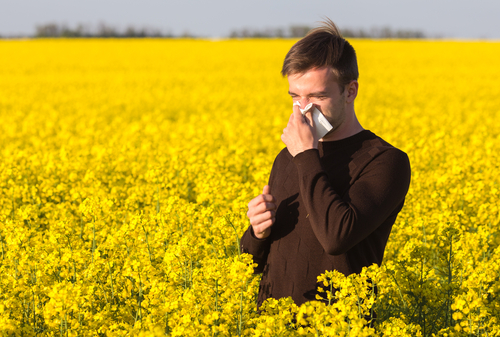DIAGNOSIS
Your doctor will perform a physical exam and ask about your symptoms, particularly whether your symptoms vary by time of day or season, and exposure to allergens. Allergy testing may reveal the pollen or other substances that trigger your symptoms. Skin testing is the most common method of allergy testing. A complete blood count (CBC) test, specifically the eosinophil count, may also help diagnose allergies.
TREATMENT
Your doctor will help you take steps to identify and avoid your allergy triggers. Steps to minimize pollen exposure include staying indoors during dry, windy days and avoiding areas with lots of plants, grass and trees.
Your doctor may also prescribe medications, such as antihistamines and decongestants, that can help reduce your immune system reaction and ease symptoms.


